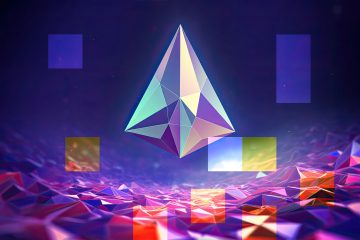As emerging technologies continue to reshape our world, Web3 browsers are gaining popularity as a more secure and decentralized way we browse the Internet. Unlike traditional browsers, Web3 browsers are built on blockchain technology, giving users more control over their digital identities and data ownership.
As a result, internet browsing is safe and secure for users, as their personal information is not tracked or exploited for profit.
In addition to providing greater privacy and security, Web3 browsers open up new possibilities for decentralized social networks and marketplaces. These platforms operate on open-source protocols, enabling users to interact and transact without intermediaries or centralized authorities.
This produces a more fair and transparent digital economy where users have more power over their data and can be compensated for participating in the network.
If you want to learn more about Web3 browsers and their potential for a more secure and decentralized browsing experience. This article will show you the basics and explore the exciting possibilities of this emerging technology.
What are Web3 Browsers?

Web3 browsers represent the next evolution of Internet browsing, offering a decentralized browsing experience that prioritizes privacy, security, and data ownership. Unlike traditional browsers that rely on central servers and third-party intermediaries, Web3 browsers use blockchain technology and let users interact directly with decentralized applications (dApps) and marketplaces.
Privacy and security are key features of Web3 browsers. Utilizing blockchain technology and peer-to-peer networking, Web3 browsers can offer a more secure browsing experience that protects user data and prevents tracking and surveillance.
In addition, Web3 browsers prioritize data ownership, giving users control over their personal information and digital assets.
Popular examples of Web3 browsers include Brave, Opera, and Mozilla. These browsers offer a range of features that support the decentralized browsing experience, such as built-in support for cryptocurrency wallets and dApp integration. However, compatibility with certain websites and user interface design may still concern some users.
The potential benefits of Web3 browsers
As we have mentioned before that, web3 browsers are the latest iteration of web browsers that enable users to interact with decentralized applications on the blockchain.
With emerging technologies such as blockchain, there has been a shift towards more decentralized and user-centric browsing experiences.
The main advantages of increased privacy and security:

One of the potential benefits of using Web3 browsers is increased privacy and security. By design, it gives users more control over their data and identity.
Data ownership is a fundamental aspect of Web3 browsers, which ensures that users have complete control over their data, unlike traditional browsers, where data is stored on centralized servers. This means that users are less susceptible to data breaches and hacking attempts, giving them more peace of mind when browsing the web.
More is the diverse decentralized browsing experience
Another benefit of using Web3 browsers is their more decentralized browsing experience. Decentralization is a core aspect of blockchain technology, providing users greater autonomy and freedom when using the Internet.
Decentralized social networks and marketplaces are built on the same principles, meaning users have more control over their online interactions and transactions.
More compatibility with easy GUI
Web3 browsers are also designed to be more compatible with decentralized applications, making it easier for users to access and interact with the digital economy. The user interface of Web3 browsers is typically more user-friendly than traditional browsers, making it easier for non-technical users to navigate and use.
Use cases for Web3 browsers
As the world continues to adopt emerging technologies, Web3 browsers are becoming increasingly popular. These browsers offer a decentralized browsing experience, prioritizing user privacy and security.
This is achieved through blockchain technology, which ensures that user data is owned by the individual rather than a centralized authority.
Creator Economy
One of the most compelling use cases for Web3 browsers is the Creator Economy. With the rise of decentralized social networks and marketplaces, creators can now monetize their content directly through cryptocurrencies and NFTs. This allows for greater financial independence and rewards users’ contributions to the network.
Decentralized Finance
Another key area where Web3 is making an impact is in the world of decentralized finance. Decentralized finance, or DeFi, is a financial application system that operates on a decentralized network. This allows for greater financial inclusivity and offers users more control over their assets.
Decentralized autonomous organizations
Decentralized autonomous organizations, or DAOs, are another area where Web3 significantly impacts. DAOs operate on a decentralized network and are governed by smart contracts. This allows for greater transparency and eliminates the need for a centralized authority.
Metaverse

The Metaverse is another area where Web3 is expected to play a significant role. The Metaverse is a virtual world where users can interact with one another in a virtual space. Web3 technology offers the potential to create a decentralized and interoperable Metaverse, where users can own their digital assets and participate in a more democratic digital economy.
Web3 is an emerging technology that is likely to play a significant role in shaping the future of the digital economy.
Challenges and limitations of Web3 browsers
Web3 browsers have the potential to revolutionize the way we interact with the Internet by providing a decentralized browsing experience that prioritizes privacy, security, and data ownership.
However, several challenges and limitations must be addressed before Web3 browsers can be widely adopted.
Some of the main challenges and limitations of Web3 browsers include the following:
- Compatibility issues with traditional websites: Many traditional websites are not compatible with Web3 browsers, making it difficult for users to access certain content.
- Slow adoption rates: Web3 Internet is still in the early stages of development and adoption, making it difficult for developers to build decentralized applications and for users to find content.
- User interface difficulties: These can be more complex and difficult to use than traditional browsers, which can be a barrier to adoption.
To address these challenges, Web3 browsers are evolving to become more user-friendly and accessible.
For example, some Web3 browsers are developing compatibility layers that allow traditional websites to be accessed within the Web3 environment. Additionally, many Web3 browsers improve their user interface and design to make them more intuitive and user-friendly.
As Web3 browsers continue to evolve, they have the potential to play a critical role in the emerging digital economy by enabling decentralized social networks and marketplaces that prioritize user privacy, security, and data ownership.
With the underlying technology of blockchain and other emerging technologies, Web3 browsers can provide a more decentralized and transparent internet experience.
The Future of Web3 Browsers

Web3 browsers can potentially revolutionize the Internet and digital economy by providing a decentralized browsing experience.
As Web3 technology evolves and improves, we expect greater compatibility with other emerging technologies, such as blockchain.
This could lead to even more innovative use cases and applications, further solidifying Web3’s role in shaping the future of the Internet. As users increasingly demand more privacy, security, and control over their data, Web3 technology will likely become an even more integral part of the internet landscape.
Conclusion
In conclusion, the emergence of Web3 browsers and decentralized social networks has the potential to revolutionize the browsing experience and provide a more secure and decentralized internet. By emphasizing user privacy and data ownership, these technologies offer a more transparent and user-centric digital economy compatible with blockchain technology. As these technologies continue to mature, we can expect to see even greater innovation and impact in the future.



